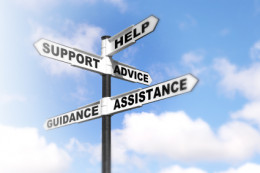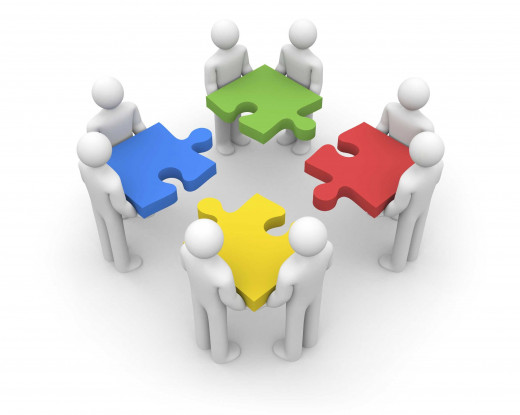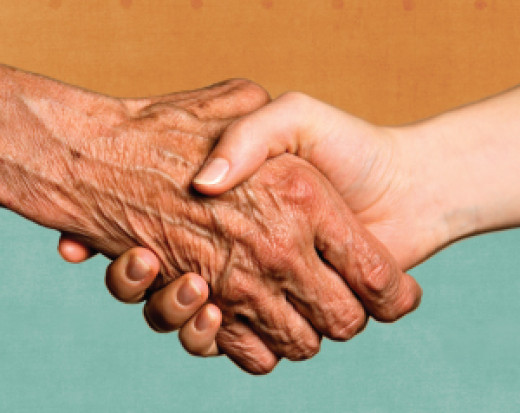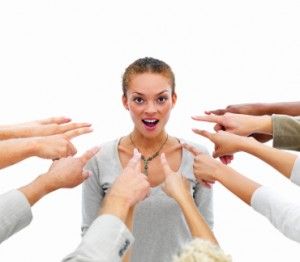Oprah interview's Cynthia Bond author of the bestseller Ruby
It is a story based on her life about abuse as a child which she hid
until the writing of this book. Find out
how she found healing and how you can help someone else going through a similar
challenge.
A therapy to young people under-going any form of abuse.
– non
verbatim due to real time transcript:
Interview:
“Every scar on her mum was a story of where she grew, as
they asked her- tell us about every scar?
She felt where her mother grew up was part of her life as she learned
about it.
She wore grey like rainclouds – quoting her mum
When she writes she
sinks into and settles into herself and is fully into her world where she feels,
sees, and tastes everything, that how she writes. When she walks into the writing room, she was
experiencing great pain and agony and didn’t have an expectation as she was
experiencing rape pain. As a victim of abuse it is as if someone is putting their
poison, hate and fear into your body.
When you write the pen is a small
tool to pour out that hate out of your body, release onto the paper.
She feels writing is her calling.
As she wrote about the rain clouds she felt right. That is honoring
your calling. That’s how you know you
are honoring your true calling.
Surviving her darkest
days?
She was having
memories of her own past that was repressed and had kept all those memories
away as she did when she was a child.
As an abused persons, she was on the floor calling for help, e.g. from
the rape experience. She would drive
weeping and she never knew she would get through it. She was suicidal and wanted to hurt herself.
The book is a story about her mother’s life and about child
trafficking. It about her own abuse. She always knew and kept those writing away
when he was a child. She never stepped out of it then but she was on the floor
calling out for therapist and she would drive around crying and weeping She was
suicidal, hospitalized and wanted to hurt herself. She went through post traumatic trauma.
Her life has helped to tell the story of Ruby. The lesson in the book is that it is possible to not only survive anything
but it is possible to be a victor and be victorious over any obstacle. She knows that in her marrow in her bones
that whatever happens as long as you are breathing you can survive and be a
victor.
Writing about Child trafficking – comes from talking to
young people and also about her abuse. There
is a wound in her that will never go away but it in no longer her shame; it is
her badge of honor. There are people in this world who know what they
did to her and her hope is that they know they did not destroy her and she want others to
know who have gone through such abuse that
they don’t have to be destroyed but they can be victorious. She will always be hurting but it is no
longer her shame but it is her badge of honor as
she has gone through the battle and she is strong and standing. “You
also can thrive through it”.
Her mother did not know about her abuse. Her mother bears the pain for not being able
to protect her from the abuse. Her
mum was tough and never thought of looking close. It is always people who are close that
sexually abuse children.
The writing helped her to heal as it is the
reason she is here on earth now and at times she feel her spirit was
tangled to be pacified but she wrote the book which helped her untangled the
necklace in her life. But writing
helped her untangle the problem I her life.
Ones you write in a journal on a page
it (the problem, agony etc) actually leaves your body. As you will be able to identify and see your
own life. If you are brave enough to
live through it the most you can do is to listen. Listening to another person’s story as it heals
as you realize you are not alone. Bearing witness is very powerful and it is a
spiritual practice to bear witness and to be with that other person. She asks the listen to bear witness her story
in the book and to the young girls listening or reading this. They are out there.
Oprah felt redeemed and she weeps in the show. It’s a holy thing she says and lol…..
The book is a holy
act and a cleansing act.
Writing is a spiritual practice for Cynthia, and says one
feels like you are going into another
place or time and you never go alone that is the spirituality of other energies, in spirituality you go with
other people before you , your
characters and your are never alone, there are other energies as well. Cynthias grandfather made living as he know
when other people would die, i.e he was intuitive or psychic as people would
say.. Her aunty was raped and shot and
her grandfather never faced justice and now that she wrote the book her mother
feels that justice is done.
Q -What kind of God
allows this to happen?
A- I am not meant to understand about the workings of this
world but she knows G od is here and she Is protected her al her life. Ruby
found her sense of spiritually through nature.
As riding on the bus she was told find something to be grateful for and looked out and saw a tree and said I am grateful for green (her
favourite colour) , flowers nature
etc, She has audacious hope of rooted
things. You can put a seed anywhere and it doesn’t get depressed and say ahh
let me give up it, but it fights for its life.
– that is God and that is what
the human spirit is about! LIFESKILL.
Q - When she wanted
to give up - and why not
A- She thought about her mother and that is why she didn’t
give up. Her mothers kept her hear. Her mother was strong she gave her her own
spirit and engraved it into her daughter, i.e took her strength and engraved
into her own. gave her her strength to
go on and her mother was there for her all the way. Took
her strength and braided it into her.
Her grandmother was religious to the point her mother could
not polish her nails as shewas told she would go to hell. O- What kind of God punishes you for the kind
of nail colour? That is a small minded
god, that is hypocrisy. God lives here and is all over us. True religion is about welcoming from the heart. Her mum found it later and found spiritual home, but Cynthia found out in her own that God is more than the
small box people try to put him in.
Dark side
She was not afraid to explore the dark side as it is part of
te world.
Negativity is the dark side coming to life – manifested - it
is the collected fear and hate. . How
do we diffuse the dark side, it is through love. You curse the darkness by lighting the
light. Light always dispels the
dark. Light a match and darkness
goes.
Heaven she believes
in. people make choices and that becomes
who they are. When people are tormented and cannot resolve
they cannot ascend fully. And that is
not anyone’s destiny. When you commit horrific acts know that this
is not your destiny.
Q- Cynthia’s vision
board and the hope of a single seed.
She believes in the vision board.
On her vision board
she had oprah and how she would like her book and all the things she hoped
would happen, had the book club symbol.
WHATS IN YOUR VISION BOARD?
Cynthia believes in the energy of attraction (vision
board) See it, do it . You create what surrounds you . You create your world. Her vision board was on her screen saver and
every time she opened her computer - there it was!
DO YO HAVE A VISION – BOARD? (WRITE
ALL THAT YOU WOULD LIKE TO SEE OR ACHIEVE, I.E THE END MISSION OF YOUR
PLANS. (and save as a screen saver to
see it daily
When she created the vision board – she wrote all she wanted
to achieve.
Q- Is there another
dream for her now that she has written Ruby.
A-Yes, she left many stories when writing “Ruby” so she hopes to live long to tell her stories
and her other dream is to see her
daughter happy and fulfilling her dreams.
WHAT ARE YOUR DREAMS?? She would like to have writing columns for
mums. She believes that it will happen
as if you are diligent enough it will happen. - It’s all in her vision board
too
Q -Her hardest lesson to learn is that – You are not a VICTIM, as when something bad
happens one thinks they are a victim over and over again.
She is gratefully – that her mother read the book and now is
not supportive of her and she can now instead provide for her and can provide
for her own daughter. She hopes there
is a woman out there who can hear this message in the world and heal from it and
that is what she is eternally grateful for.
BOOK - RUBY –by
Cynthia Bond
O’s message from the book –
“THE AUDICIOUS HOPE OF ROOTED THINGS – A SEED WHEN PLANTED
NEVER STOPS TO GET DETERMINED TO GROW THAT IS WHAT IS OUR LIVES.”
www.facebook.com/supersoulsunday
live streamed on 22 March 2015
(available two weeks after the
live stream) – 22 March 2015
Summary of life skills from this episode:
- Journal your troubles away, as you leave them on
paper
- You can become victorious from your life
troubles and make them “your badge of honour”
- Do not let others hurts, pains, troubles
penetrate into your heart through the
things they do to you
- Listen and be a witness to other people’s
painful experiences as it helps them heal.
- If you are troubled, seek help from a
professional counselor instead of rubbing off your problems onto others e.g by
abuse, hate and expression of your fears
Margaret Maingi
Message used in the commercial break:
Phenomenal Woman
Pretty women wonder where my secret
lies.
I’m not cute or built to suit a
fashion model’s size
But when I start to tell them,
They think I’m telling lies.
I say,
It’s in the reach of my arms,
The span of my
hips,
The stride of my
step,
The curl of my
lips.
I’m a woman
Phenomenally.
Phenomenal woman,
That’s me.
I walk into a room
Just as cool as you
please,
And to a man,
The fellows stand or
Fall down on their
knees.
Then they swarm around me,
A hive of honey
bees.
I say,
It’s the fire in my
eyes,
And the flash of my
teeth,
The swing in my
waist,
And the joy in my
feet.
I’m a woman
Phenomenally.
Phenomenal woman,
That’s me.
Men themselves have
wondered
What they see in me.
They try so much
But they can’t touch
My inner mystery.
When I try to show
them,
They say they still can’t
see.
I say,
It’s in the arch of my
back,
The sun of my smile,
The ride of my breasts,
The grace of my style.
I’m a woman
Phenomenally.
Phenomenal woman,
That’s me.
Now you understand
Just why my head’s not
bowed.
I don’t shout or jump about
Or have to talk real
loud.
When you see me passing,
It ought to make you proud.
I say,
It’s in the click of my
heels,
The bend of my hair,
the palm of my
hand,
The need for my
care.
’Cause I’m a woman
Phenomenally.
Phenomenal woman,
That’s me.
reference:
www.oprah.com/supersoulsunday - livestream
-non verbatim due to realtime transcript.





